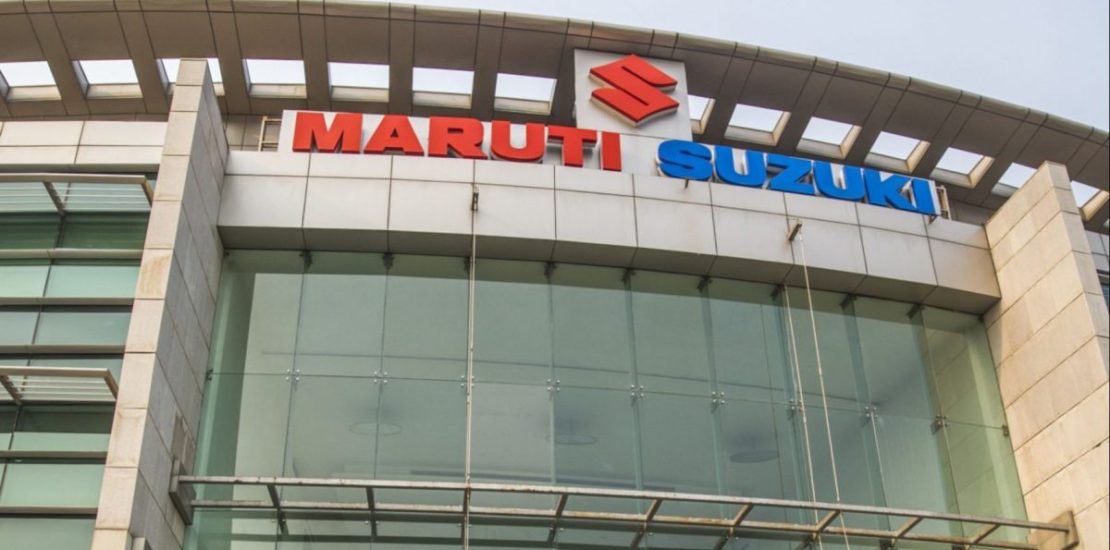- October 26, 2021
- Posted by: Maestro Legal
- Categories:

Order dated 28th August, 2021, CCI has imposed a penalty of ₹ 200 crores on Maruti Suzuki India Limited (MSIL) for Anti-Competitive conduct. In this case, MSIL was alleged to indulge in the practice of Resale Price Maintenance (RPM) which is a violation of sec. 3(4) of the Competition Act, 2002 (hereinafter, Act). We will be understanding it in 3 parts: [1] What is Resale Price Maintenance? [2] Facts of the case. [3] Order of the commission.
What is Resale Price Maintenance?
The object of the Act is to protect the interest of the consumer and protect the market from the conduct of an enterprise from having an adversarial effect on the market. If the conduct of an enterprise has an appreciable adverse effect on competition (AAEC) then it will be held under the Act and will be punished accordingly. Now the question comes what is AAEC, AAEC means that any act which has the potential to harm the competition in the market, that is why the term appreciable is used in AAEC, which means upholding the adverse effect.
The conducts which have the potential to harm the competition and come under the ambit of AAEC are defined under the Act. RPM is one of such conduct which has the potential to cause the AAEC, it has been defined under sec 3(4) of the Act. Resale Price Maintenance (RPM) as defined under Explanation (e) to Section 3(4) of the Act includes any agreement to sell goods on condition that the prices to be charged on the resale by the purchaser shall be the prices stipulated by the seller unless it is clearly stated that prices lower than those prices may be charged.
RPM means, when a seller stipulates the price below which the first purchaser can’t sell the product to the next buyer of the same product, it is not hard to understand by this that RPM is a vertical agreement. Now we should understand why it has an adverse effect on the competition.
The minimum price at which the product must be resold to customers is specified by the supplier. Setting a minimum price is problematic from the standpoint of competition policy. A supplier can exert some control over the product market by maintaining its pricing. This form of vertical price-fixing may prevent the margin from retail and wholesale prices from being reduced by competition. Nevertheless, some say they do it to maintain the status and reputation of their brand name, but if this conduct of an enterprise cause AAEC in the market then it can be held under the act. In many countries, RPM is per se illegal.
Facts of the case
Suo Motu case was taken by the CCI pursuant to an email received from a purported MSIL dealer. There were several allegations made against MSIL’s sales policy being against the interest of customers and also against the provisions of the Competition Act, 2002.
The Commission therefore, directed the Director General (DG) to investigate the matter and submit a report. Upon investigating, it was found that MSIL did in fact instruct its dealers to not offer discounts to customers below the price mentioned by MSIL in Discount Control Policy. To look over the Discount Control Policy, Mystery Shopping Agents (MSA) were appointed by MSIL.
The Investigation report stated, “MSIL framed guidelines and gave instructions to its dealers to not offer discounts without its permission over certain pre-restricted levels. Further, MSIL appointed Mystery Shopping Agencies (‘MSA’) to keep a track of the discounts offered by the dealers and threatened to impose/imposed penalties on them and/or even threatened to suspend supply of premium models to them for violation of such Discount Control Policy.”
Order
The CCI on examining the emails exchanged between MSIL and the dealers found that it was clear that MSIL was an integral part of the planning and implementation of the Discount Control Policy.
The order said, “DG found multiple e-mails that prove that MSIL did, in fact, have a ‘Discount Control Policy’ in place, for its dealers and the dealers were discouraged from giving extra discounts, freebies, etc. to consumers beyond what was permitted by MSIL. If found to be violating the Discount Control Policy, the dealers were threatened with the imposition of penalty, not only upon the dealership, but also upon its individual persons, including Direct Sales Executive, Regional Manager, Showroom Manager, Team Leader, etc., and stopping of supplies.”
The Court said that various e-mails exchanged between MSIL and dealers showed that MSIL not only imposed the Discount Control Policy on dealers but also enforced the same by monitoring dealers through MSAs, imposing penalties on them and threatening strict action like stoppage of supply, collection and recovery of penalty and utilisation of the same.
Conclusion
Healthy competition gets hampered by the RPM at both the intra-band level and inter-band level. Because of the restriction, distributors are prevented from decreasing the resale prices beyond the restricted price. In simple words, distributors can’t participate in healthy competition due to the imposed limit. This price imposition does not allow the distributors to compete effectively on price, such as stifling competition harms the consumers and result in higher prices.
Without RPM distributors can compete with each other without limitations which will have two benefits in the market, first, that there will be a healthy competition among distributors and second, the consumer will be the end beneficiary of this competition. Because of healthy competition in the market consumer will get the benefit of it and will get a good quality product at a low rate.
Therefore, the discount control policy of MSIL amounts to the RPM and restricts the distributor to offer the product below that threshold which harms the competition and consumer both, and have AAEC, for this act and violation of the Competition Act, CCI has imposed the penalty on MSIL of ₹ 200 crores.
